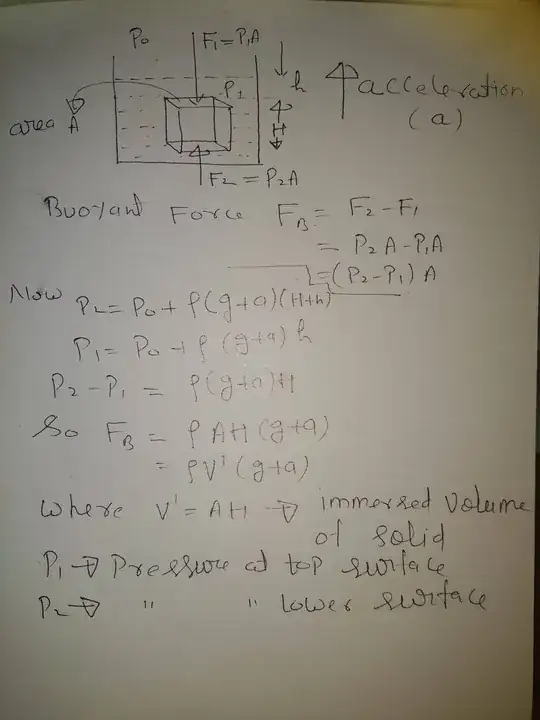If we have a fluid which is in a container that is accelerated, say, upward by $a$. Then, what will be the buoyant force on an object with volume $V$, Density of liquid, $\rho$?
I believe it will be $V \rho(g+a).$ Am I right, or have I confused it with pseudo force? Can you please give a suitable explanation?
